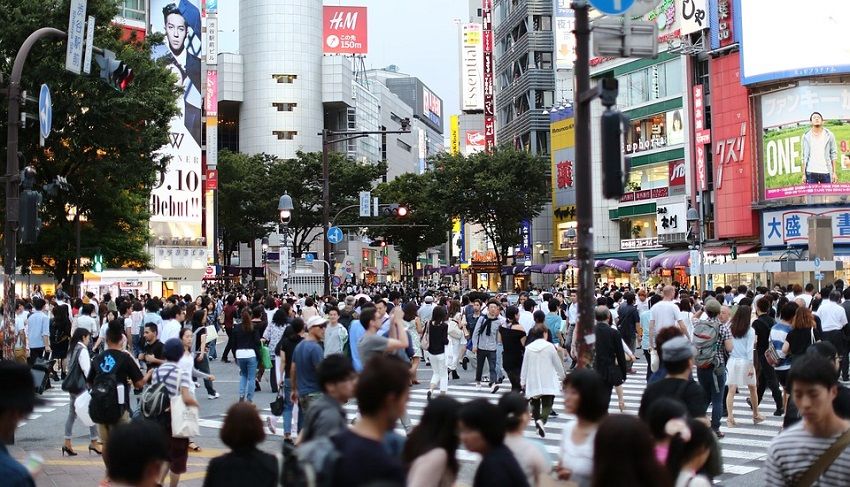Five schemes to make governments more business-friendly
By GovInsider
Examples from the best in the world, and key trends from the region.

Competition is rife among governments in South East Asia. From “startup districts” to slashing permits, governments are setting out ambitious plans to make their countries more attractive to businesses.
GovInsider has mapped the five most business-friendly countries in the world, discussed what they have done, and looked at the key trends in the region.
Who are the best?
Singapore, New Zealand, Denmark, South Korea and Hong Kong were ranked as the five best places to do business by the World Bank Doing Business Report 2016.
What have they done?
Here are the key steps these governments have taken to make their countries more business-friendly.
1. Quick start up New Zealand has the quickest and easiest process to start a new business.
“An entrepreneur can complete the entire process of company formation in just a few hours through a single online procedure,“ the World Bank report says.
A simple registration process also cuts costs for starting up. Most startup costs comes from hiring third-party professionals like lawyers and notaries to navigate complex government processes.
2. Efficient court process Quick, inexpensive and high quality court process is one of Singapore’s keys to a good business environment.
The country requires 150 days - the shortest time in the world - to resolve legal disputes. An efficient judicial system ensures that business contracts are enforced, taxes collected and, overall, can “improve the business climate”, the report found.
The government has introduced digital services allowing litigants to submit claims, serve their summons and pay court fees online.
The court can use it to keep litigants and lawyers informed on hearing dates and hold hearings through videoconferences.
3. Digital property registrations Business, big or small, will need property to set up shop. Digital land registries can help governments cut time to register property transfers and owners.
“In the economies that digitised their registry, the time required to transfer property has fallen by 38% since 2011,” the World Bank says.
In New Zealand, for instance, businesses can file their applications online and a lawyer can process the transfer immediately through the land registry’s portal.
4. Flexible hiring Employment laws affect businesses’ productivity, ability to adjust to shocks and overall job flows.
“The challenge in developing labour policies is to avoid the extremes of over- and underregulation by balancing labor flexibility with worker protection,” the World Bank says.
Denmark has adopted rules to make hiring and firing more flexible for businesses. This makes it easier for companies to dismiss employees and stay afloat during an economic downturn.
To counter that, the government provides unemployment securities for the unemployed, and offers guidance on jobs and education to those without jobs.
However, the “fiscal costs can be high during periods of economic slowdown”, the Bank added.
5. Setting up electricity Electricity is a basic need for businesses, but in some countries it can be a complex process to set up supply.
South Korea has the simplest and fastest process to get a new electricity connection - 18 days. It also has a high score on reliability.
Businesses in Seoul face less than an hour of outage annually, and receive compensations if electricity isn’t restored within a certain time.
The country’s utility uses automated systems to monitor outages and restore supply.
6. Getting finance Small and medium businesses generally lack real estate to put up as collateral, making it harder to get loans.
The Hong Kong Government has addressed this by setting up a central collateral registry, allowing small businesses to use movable assets as collateral for their loans.
Last year, the city launched a full digital service to support this. Companies can now register, change, renew and cancel security interests for loans online.
What is happening in the region?
There are three key trends among governments in the region to improve the business environment. First, countries are cutting out excess permits.
The Indonesian government has announced plans to massively slash the number of permits required for housing projects. Elsewhere, every city in the Philippines has been instructed to speed up business permits.
Second, governments are launching single business portals to simplify processes. Malaysia, for instance, is bringing together 1,500 different business permits onto a one website.
“You would be able to find any type of license without having to run around various authorities,” the country’s Government CIO has said.
Elsewhere, Thailand is planning a single portal with all services for starting and running businesses.
The vision is that “when you want to start a business in Thailand, there will be no need to bring any documents”, the country’s e-government chief has told GovInsider.
Third, governments in the region are taking services online to cut out corruption. There is a “trend of reducing face to face interaction” between the government and businesses, says Mulya Amri, Research Fellow at the Asian Competitiveness Institute in Singapore.
The “perception” is that more opportunities for direct interactions will increase opportunities for bribes, he says. Unlike private players, governments haven't traditionally been in the game of competition. But the tables have turned - only the best will win over businesses.
Main image under Public Domain Second image by Prachanart Viriyaraks, CC BY 2.0